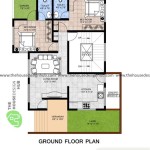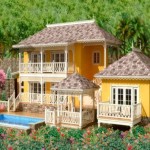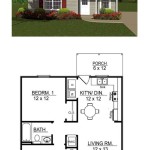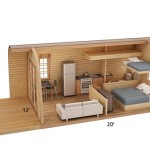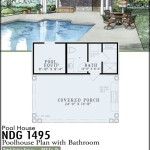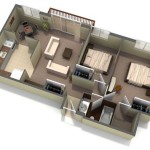Guinea Hen House Plans: Considerations for a Thriving Flock
Guinea fowl, known for their distinctive calls and insect-eating prowess, can be a valuable addition to a homestead or small farm. Providing appropriate housing is crucial for their health, safety, and successful integration into the poultry yard. Guinea hen house plans should be tailored to accommodate the specific needs of these birds, considering factors such as flock size, climate, and predator pressure. This article will outline key principles and considerations when designing and constructing a guinea hen house.
Unlike chickens, guinea fowl retain strong wild instincts, preferring to roost at high vantage points. They are also more prone to flying, especially when startled. These characteristics influence the design requirements for a guinea hen house, necessitating features that cater to their natural behaviors while offering protection from the elements and potential threats. Simple chicken coops may not be adequate, and specialized designs often lead to better outcomes. Adequate space, secure construction, and accessibility for cleaning and maintenance are all essential elements.
Before embarking on the construction process, it is crucial to determine the optimal size and layout of the guinea hen house. This involves considering the number of guinea fowl to be housed and the availability of outdoor space. Overcrowding can lead to increased stress, aggression, and the spread of diseases. Insufficient space can also discourage egg laying and negatively impact overall flock health. Conversely, a disproportionately large house might be more costly to build and maintain without offering significant benefits.
Space Requirements and Flock Size
A general rule of thumb for guinea fowl housing is to provide at least 4 square feet of floor space per bird inside the house. This allows for comfortable movement, roosting, and feeding activities. If the guinea fowl have access to a large, secure outdoor run, the indoor space requirement can be slightly reduced, but it should not be significantly compromised. A well-designed run provides additional foraging opportunities and reduces confinement stress. When estimating flock size, consider future expansion plans. It is often beneficial to build a house that can accommodate a larger flock than currently intended, allowing for future breeding or additions to the group.
The height of the guinea hen house is another important consideration. Guinea fowl prefer to roost high off the ground, so providing sufficient vertical space is crucial. A minimum height of 6 feet is recommended, allowing for the installation of multiple roosting bars at varying heights. Providing a range of roosting options can accommodate the different preferences within the flock and reduce competition for the highest spots. Roosting bars should be sturdy and smooth, made of materials such as treated lumber or metal piping. Avoid using rough or splintered wood, which can injure the birds' feet.
Ventilation is critical for maintaining a healthy environment inside the guinea hen house. Guinea fowl, like other poultry, produce moisture and ammonia, which can build up in poorly ventilated spaces. Inadequate ventilation can lead to respiratory problems, eye irritation, and other health issues. Proper ventilation also helps to regulate temperature and prevent the buildup of condensation, which can create damp conditions conducive to bacterial and fungal growth.
Ventilation and Climate Control
Effective ventilation can be achieved through a combination of natural and mechanical methods. Natural ventilation relies on the movement of air through openings in the walls and roof of the house. Vents should be strategically placed to allow for cross-ventilation, which maximizes airflow. Soffit vents along the eaves and ridge vents at the peak of the roof are effective for promoting air circulation. The size and number of vents should be adjusted based on the climate and the size of the house. In colder climates, adjustable vents can be used to regulate airflow and minimize heat loss during the winter months.
Mechanical ventilation involves the use of fans to circulate air and exhaust stale air. Exhaust fans can be installed near the roof to remove warm, moist air from the house. Intake fans can be used to draw fresh air into the house from outside. Mechanical ventilation is particularly useful in hot, humid climates where natural ventilation alone may not be sufficient to maintain a comfortable environment. When selecting fans, choose models that are energy-efficient and designed for agricultural use. Consider installing a thermostat to automatically control the fans based on temperature.
In addition to ventilation, insulation can play a significant role in regulating temperature inside the guinea hen house. Insulation helps to keep the house warmer in the winter and cooler in the summer, reducing the need for supplemental heating or cooling. Several types of insulation are suitable for poultry houses, including fiberglass batts, rigid foam boards, and spray foam. The choice of insulation will depend on factors such as cost, availability, and ease of installation. Ensure that the insulation is properly installed to prevent moisture buildup and pest infestations.
Predator protection is a paramount concern when designing a guinea hen house. Guinea fowl are vulnerable to a variety of predators, including foxes, coyotes, raccoons, hawks, and owls. A secure house is essential for protecting the birds from these threats, especially during the night when they are most vulnerable. The construction materials and design features should be chosen to minimize the risk of predator entry.
Predator-Proofing and Security Measures
One of the most important aspects of predator-proofing is ensuring that the house is built on a solid foundation. A concrete slab or a perimeter foundation made of concrete blocks or treated lumber provides a barrier against burrowing predators. The foundation should extend at least 12 inches below ground level to prevent animals from digging underneath it. The walls of the house should be constructed of durable materials such as wood, metal, or concrete blocks. Avoid using thin or flimsy materials that can be easily penetrated by predators.
All openings in the house, including doors and windows, should be securely closed and latched. Use heavy-duty latches that are difficult for predators to open. Cover windows with wire mesh or hardware cloth to prevent animals from reaching inside. The door should fit tightly against the frame to prevent gaps that predators could exploit. Consider using a double-door system to create a secure entry and exit point. Wire mesh can be extended underground around the perimeter of the house, creating an apron that prevents digging predators from reaching the foundation.
In addition to structural measures, consider implementing security measures to deter predators. Motion-activated lights can startle animals and discourage them from approaching the house. A livestock guardian dog can provide effective protection against a variety of predators. Regularly inspect the perimeter of the house for signs of predator activity, such as tracks or droppings. Address any potential vulnerabilities promptly to prevent attacks. Guinea fowl themselves are effective alarm systems, their loud calls alerting to any potential danger. Utilizing this natural instinct along with the preventative measures can bolster defense against predation.
Ultimately, successful guinea hen house plans involve careful planning, attention to detail, and a commitment to providing a safe and comfortable environment for the birds. By considering the factors outlined above, prospective guinea fowl owners can create housing that supports the health, well-being, and productivity of their flock.

Guinea Fowl Coop Ideas Our New Rustic Covers All The Needs

Diy Guinea Hen Coop 5 Dog Farm

En Coop Plans

Guinea Fowl Coop Ideas Our New Rustic Covers All The Needs

Yay The Guinea Coop Is Finished I M Diggin It Guineas Are Ens Backyard En Coops Plans

En Coops And The Inhabitants Diy Coop Plans

Do Guinea Fowl Need A Coop Cluckin

Guinea Fowl Coop Ideas Our New Rustic Covers All The Needs

Virtual En Coop Tour No 4 A Dozen Larger Garden Coops The

The Garden Coopark En Coop Plans Two Ebooks S Instant U And Metric Units Feet Inches Mm

